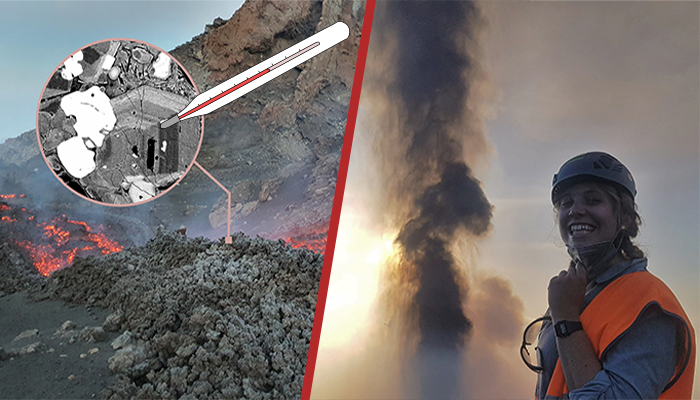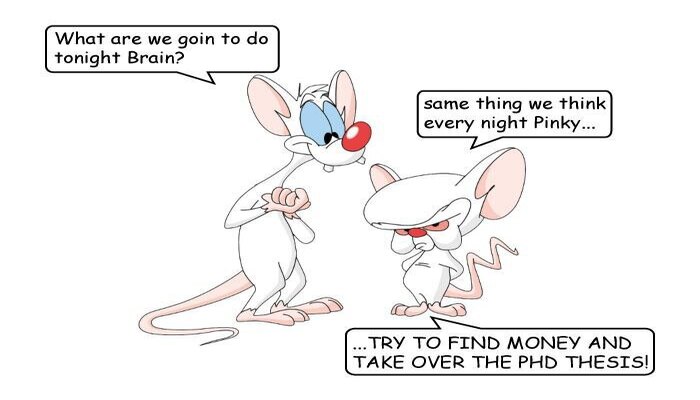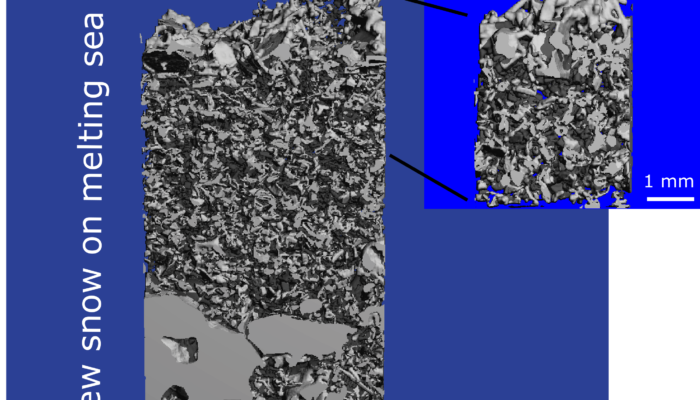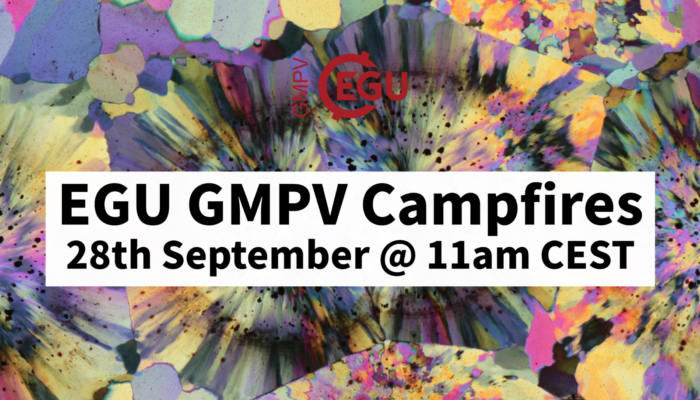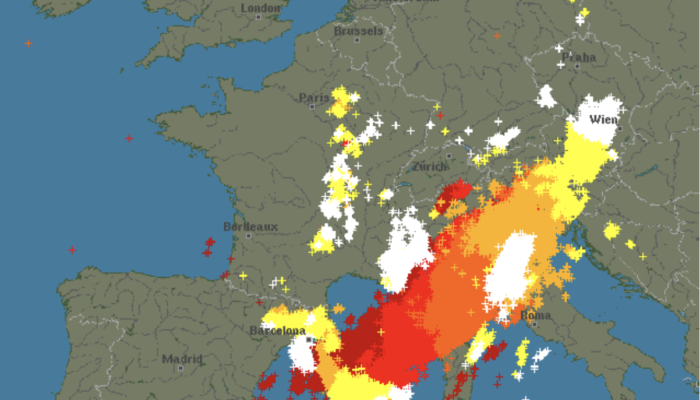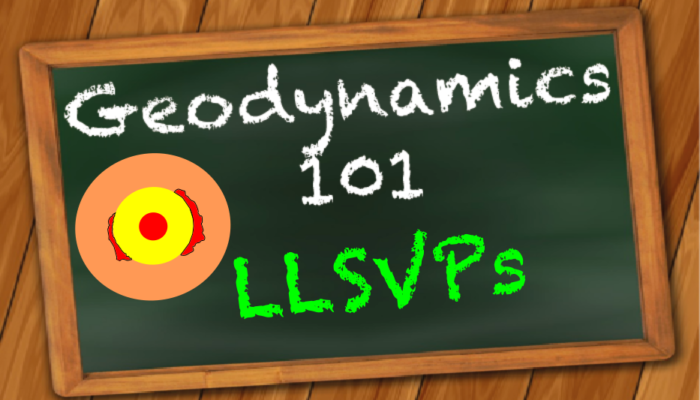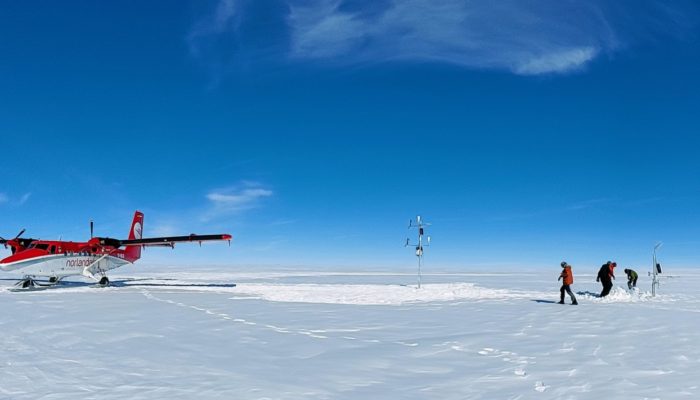It may be not be known to the wider lectureship of this column, but every year, around May, the headquarters of EGU-blogs are up for some important (and crucially, self inflicted) bit of house-keeping: the confirmation of the members of the blog team for the incoming editorial year. Those of you with colleagues that are here with me behind the curtains, might know about it from the relentless recr ...[Read More]
Geochemistry, Mineralogy, Petrology & Volcanology
Machine Learning and Volcanic Crystals: a journey with Corin Jorgenson into Random Forest Thermobarometry
Thermobarometry: a bit of background Being able to understand the eruptive style of a volcano, how the eruptive behavior can evolve over time and managing to better interpret the signals that a volcanic system gives us before an eruption are of fundamental importance for mitigating the risk associated with eruptive activities. In this context, it is extremely important to understand trans-crustal ...[Read More]
Geodynamics
Focusing on doing research or worrying about paying expenses?
Scientists and inventors like Albert Einstein, Leonardo Da Vinci, and Nikola Tesla paved the road for generations of young people to pursue a career in STEM. Their curiosity underpinned their passion for science. Unfortunately, the bright side of something usually hides a dark side too. For example, Nikola Tesla struggled to find financial support for his experiments and inventions, often ending u ...[Read More]
Cryospheric Sciences
Did you know that snow is hot?
When I was a student, Martin told me matter-of-factly that snow is hot. I probably looked as baffled as I felt (and you are probably doing the same). Were we talking about the same thing? Continue reading to discover why snow is hot! Discovering that snow is hot So why is snow hot? Most snow under Earth’s environmental conditions has a homologous temperature Th close to 1. The homologous temperatu ...[Read More]
Geodynamics
The Sassy Scientist – Diamonds in the Rough
It’s that time of year again. The academic year is ramping up, everyone is back from their summer holiday and expecting miraculous things from you, the deadlines are rolling in and there is (unfortunately) no end in sight. So of course, Paxman, like many of you, is wondering: How can I feel less pressure/stress in my work? Dear Paxman, Stress? Pressure? Surely you love your research enough that ev ...[Read More]
Geochemistry, Mineralogy, Petrology & Volcanology
EGU GMPV Campfires – Wednesday 28th September 11am CEST
We are happy to announce the 18th edition of our very own GMPV Campfires! This edition will be focusing on Mineralogy and Petrology and will be held on Wednesday 28th September at 11am CEST on Zoom. Our three speakers are: Beatrice Celata (PhD Student @ Sapienza University of Rome) – Tourmaline breakdown experiments applied to subduction systems: preliminary results. Norbert Toth (PhD Stude ...[Read More]
Nonlinear Processes in Geosciences
What the 2022 summer thunderstorms in the Mediterranean tell us about the ongoing climate change?
The 2022 European summer was governed by the presence of a persistent cold drop (low pressure area) located between Portugal and France. The change in its position has determined the alternation between hot conditions (low pressure center over Portugal) and stormy conditions (cold drop over France). The warming of the Mediterranean Sea (up to +6°C compared to the period 1990-2020) has largely cont ...[Read More]
Geodynamics
LLSVPs: Mysteries in the Deep Mantle
Did you know that there are big, blob-like anomalies in the deep mantle which are larger than a continent and rise up to hundreds of kilometers from the core-mantle boundary? Today’s post is all about those blobs and what we know and do not know about them. If you want to know more about why these blobs are so interesting to study, check out this other cool blog post by Jamie Ward. If you look at ...[Read More]
Geodynamics
The Sassy Scientist – Happy Perspectives
Anybody that has read at least one post of my weekly column, knows I am not shy about giving to Caesar what belongs to Caesar. Or in this case clearly pointing at the problems in the academic world. Alba seems to have taken this one step further and asks: Why is no one in academia happy? Dear Alba, Believe me, I see where this is coming from, but this might be taking things a tiny bit too far, don ...[Read More]
Cryospheric Sciences
Cryo Adventures – Installing a weather station on the Greenland Ice Sheet
Soaking up the sun and recharging batteries on a peaceful and quiet summer day, or fighting to stay upright during extreme snow storms in the middle of winter, while continuously recording valuable air temperature, pressure, wind-speed and so much more – such is the life of an automatic weather station on the Greenland ice sheet. Even though they are so remote, sitting by themselves surround ...[Read More]


